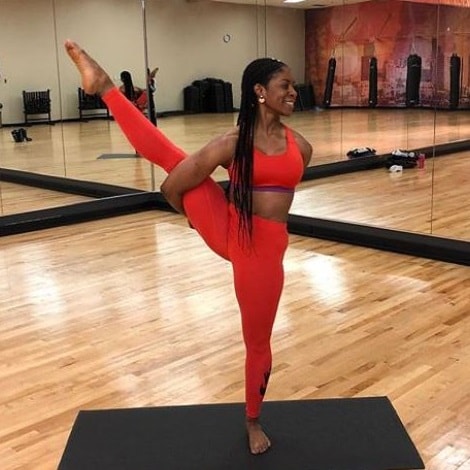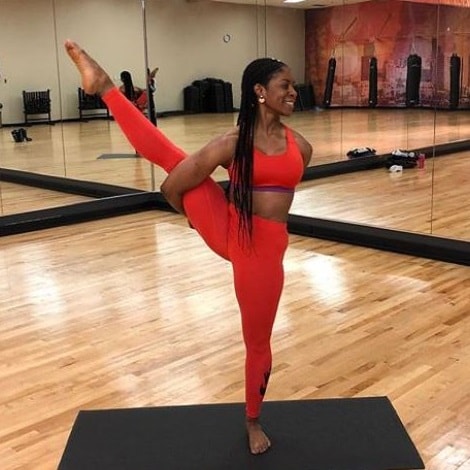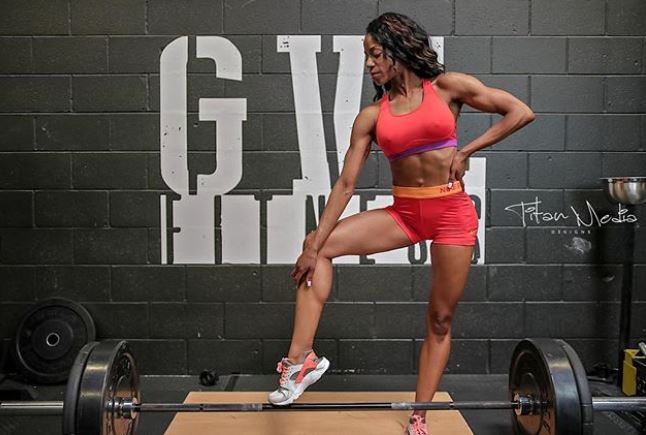Written by Tiffany Van, owner of 'Fitness Boutique by Tiffany', personal trainer and weight loss specialist, certified Pilates instructor, Yoga instructor, IFBB Bikini Pro and former professional dancer. Whew!
I’m often asked what is Pilates? What is the difference between Pilates and Yoga? Can I use it for strength training? Who is Pilates good for? My answer is always, Pilates is for everyBODY! I strongly believe that anyone young or old, beginner to extremely fit, athlete or not, should incorporate Pilates into their fitness routine. Pilates is a core focused, total body workout that will have you feeling and looking wonderful. Read below to uncover 5 benefits that everyone will receive from Pilates.
Never tried Pilates? Try Club Pilates for FREE!
Improves the ability to recruit the proper muscles:

Pilates is an excellent complement to other forms of exercise. Pilates is not strictly about working the core musculature, it also requires you to recruit secondary muscles that we don’t often turn on when we perform compound lifts or do traditional weightlifting and strength training workouts. With the ability to get these muscles to fire, they can support you in your traditional moves. We often recruit our “strong muscles” when we perform lifts just because those are the ones that we can access. It doesn’t mean the movement is correct and this can lead to dominant muscles which are overworked because they are having to work when they should be at rest or should be working synergistically with another muscle group and that natural order isn’t happening. With Pilates, we are better able to identify and feel the muscle groups that have become weakened over time due to us not being able to properly recruit them. Sending these new signals to the brain translates to better movement patterns in the gym and in performing day to day tasks.
Improved Core Strength:
Pilates gives you a stronger core and I mean for real. Many people seek the coveted six-pack abs but I’ve got news for you. The superficial muscles, although they are aesthetically pleasing, don’t equate to core strength. Pilates works the deep internal muscles such as the transverse abdominals. These muscles are responsible for stabilizing the spine (think no more low back pain) and the lumbopelvic complex thus facilitating ease of movement, keeping pesky pain and chronic injury away. This is great for overall function in everyday movements and for enhancing sports performance.
Improved body control:
Pilates has many moves that are similar to moves performed in a dance class. Ever wonder why football players and other athletes take ballet, and are now gravitating towards Pilates? It’s because with Pilates you learn how to generate movement from your core. Your core includes your abdominals, low back, and glutes and is considered the powerhouse of your body. Being able to move from your center helps you to be more agile and to generate more power and speed because it gives you more control over your limbs.
Increase flexibility/ Range of motion:
Many of the movements in Pilates require you to bend, lengthen, and twist in ways we are not asked to do on a daily basis. Moving in different planes of motion such as extending your spine in a movement like Swan or twisting when performing Saw creates more space between the discs of your spine, opening you up to an improved range of movement. So many people sit at a desk which leads to poor posture. Sitting for long periods of time also tighten the hip flexors which are already excessively tight as they are recruited constantly throughout the day when we are walking or sitting. Pilates helps to undo these habits we have taken on due to repeated movement patterns.
Tighter, Leaner Waistline:
Yes, Pilates will tighten your waist because as you work the deep stabilizing muscles of the core, you learn to engage your abdominals throughout your day. Some common cues you may hear in a Pilates class are to draw your navel towards your spine, knit your rib cage down and together, engage or lift your pelvic floor, or to lengthen through your spine. All of these mechanisms lead to you creating what many Pilates teachers refer to as an “internal corset.” Your posture improves due to this engagement, and many will notice that their waistline becomes tighter.
Never tried Pilates? Try Club Pilates for FREE!




